
Killarney: The Jewel of Ireland's Southwest
Nestled in the heart of County Kerry, Killarney is a picturesque town that offers a rich tapestry of natural beauty, history, and culture. Famous for its stunning landscapes, Killarney is home to the breathtaking Killarney National Park where you can explore lush forests, serene lakes, and the majestic Torc Waterfall. The park is also the site of the 19th-century Muckross House, a Victorian mansion that provides a glimpse into Ireland's past. The town itself is brimming with charm, featuring quaint streets lined with colorful shops, cozy pubs, and welcoming restaurants. Killarney is renowned for its traditional Irish music sessions, which you can enjoy in many of its lively pubs. The town is also a gateway to the Ring of Kerry, a scenic drive that takes you through some of the most dramatic landscapes in Ireland. Killarney's rich history is evident in its many historical sites, such as Ross Castle, a 15th-century fortress located on the edge of Lough Leane. For a unique experience, take a jaunting car ride through the town and its surroundings, guided by local jarveys who will share fascinating stories and insights. Whether you're an outdoor enthusiast, a history buff, or simply looking to soak up some Irish culture, Killarney offers something for everyone.
Local tips in Killarney
- Visit Killarney National Park early in the morning to avoid crowds and experience the tranquility of nature.
- Take a jaunting car ride for a traditional and informative tour of the town and its surroundings.
- Don't miss the traditional Irish music sessions in local pubs, especially on weekends.
- Wear comfortable shoes as Killarney is best explored on foot, especially the trails in the national park.
- Try local dishes such as Irish stew and seafood chowder at one of the town’s cozy restaurants.
Killarney: The Jewel of Ireland's Southwest
Nestled in the heart of County Kerry, Killarney is a picturesque town that offers a rich tapestry of natural beauty, history, and culture. Famous for its stunning landscapes, Killarney is home to the breathtaking Killarney National Park where you can explore lush forests, serene lakes, and the majestic Torc Waterfall. The park is also the site of the 19th-century Muckross House, a Victorian mansion that provides a glimpse into Ireland's past. The town itself is brimming with charm, featuring quaint streets lined with colorful shops, cozy pubs, and welcoming restaurants. Killarney is renowned for its traditional Irish music sessions, which you can enjoy in many of its lively pubs. The town is also a gateway to the Ring of Kerry, a scenic drive that takes you through some of the most dramatic landscapes in Ireland. Killarney's rich history is evident in its many historical sites, such as Ross Castle, a 15th-century fortress located on the edge of Lough Leane. For a unique experience, take a jaunting car ride through the town and its surroundings, guided by local jarveys who will share fascinating stories and insights. Whether you're an outdoor enthusiast, a history buff, or simply looking to soak up some Irish culture, Killarney offers something for everyone.
When is the best time to go to Killarney?
Iconic landmarks you can’t miss
Killarney National Park
Experience the natural wonders of Killarney National Park, where scenic beauty meets rich history and diverse wildlife in the heart of County Kerry.
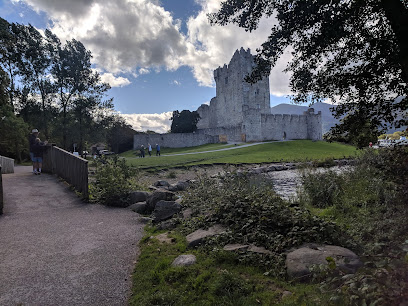
Muckross House
Experience the charm and history of Muckross House, a Victorian masterpiece nestled in Killarney National Park, with stunning gardens and rich cultural heritage.
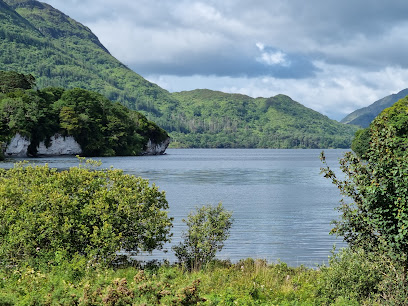
Ross Castle
Explore Ross Castle in Killarney, a captivating historical landmark surrounded by breathtaking natural beauty and rich Irish heritage.

Torc Waterfall
Explore the enchanting Torc Waterfall in Killarney National Park, a breathtaking natural wonder that showcases Ireland's scenic beauty and rich wildlife.
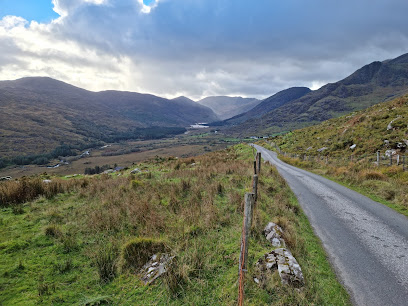
Killarney Outlet Centre
Explore the Killarney Outlet Centre for unbeatable deals on fashion and local crafts, all in a charming setting of beautiful Killarney.
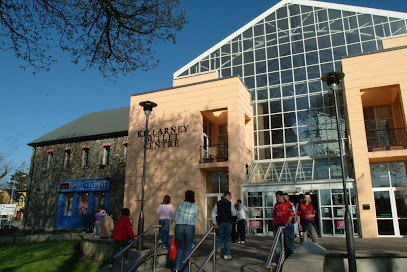
J.M. Reidy's
Discover the charm of Killarney at J.M. Reidy's, where traditional Irish hospitality meets a vibrant atmosphere and delicious local cuisine.
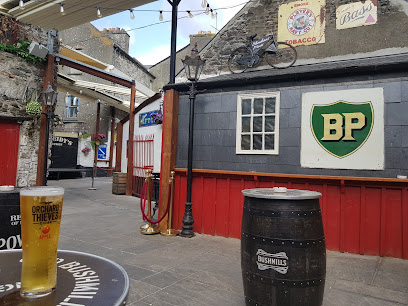
Great Southern Killarney
Discover the luxurious Great Southern Killarney, a historic resort hotel offering elegant accommodations and breathtaking landscapes in the heart of County Kerry.
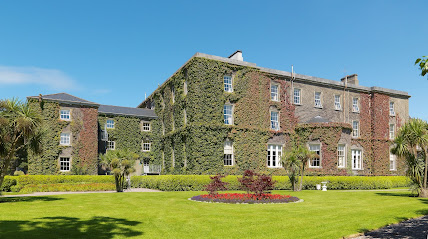
Muckross Abbey
Discover the historical beauty of Muckross Abbey, a serene retreat in Killarney National Park, where nature and heritage intertwine.
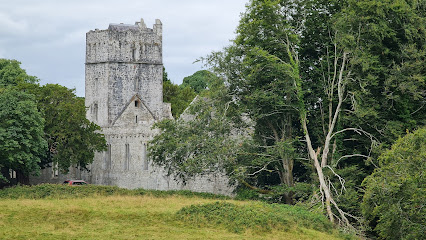
The Taproom at Killarney Brewing & Distilling Co.
Discover the flavors of Killarney at The Taproom, where craft beer meets delicious pizza in a cozy brewpub setting.
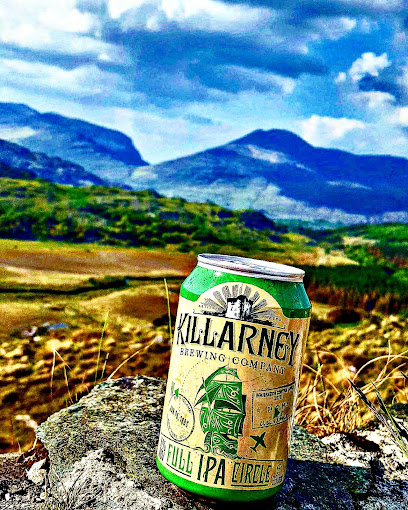
Tatler Jack
Discover Tatler Jack in Killarney - Your perfect blend of comfort, local cuisine, and live music in the heart of County Kerry.
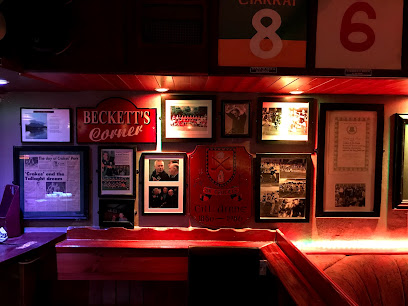
Bricín Restaurant and Boxty House
Experience authentic Irish cuisine at Bricín Restaurant and Boxty House in Killarney, where tradition meets local craftsmanship in a warm, inviting atmosphere.
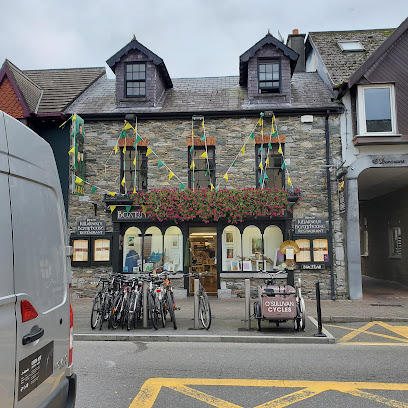
The Black Sheep Hostel & Coffee Shack
Experience the perfect blend of comfort and community at The Black Sheep Hostel & Coffee Shack, your cozy retreat in Killarney.
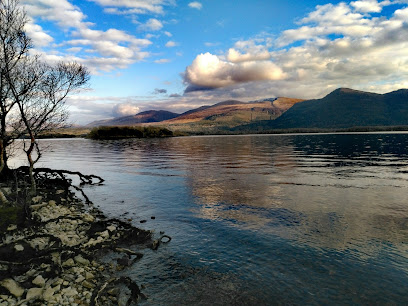
Knockreer Playground
Discover the beauty and fun of Knockreer Playground in Killarney, a perfect family-friendly park in County Kerry, Ireland.
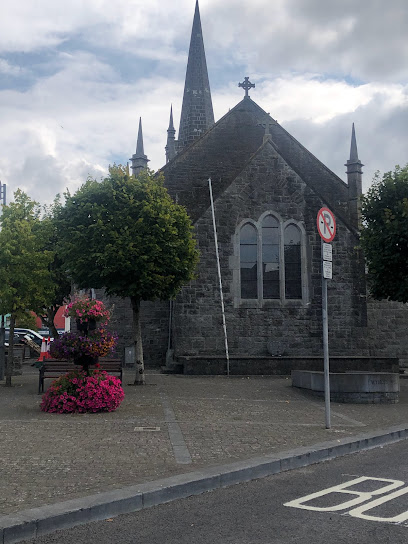
Killarney House and Gardens
Experience the enchanting beauty of Killarney House and Gardens, where history meets nature in a breathtaking Irish landscape.
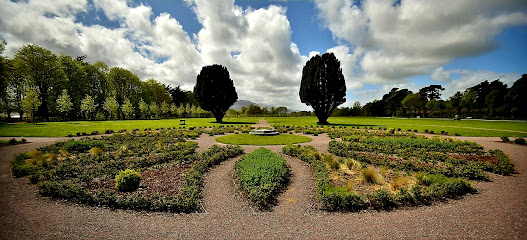
Killarney Riding Stables
Experience the breathtaking landscapes of Killarney National Park on horseback at Killarney Riding Stables, a perfect adventure for all ages.
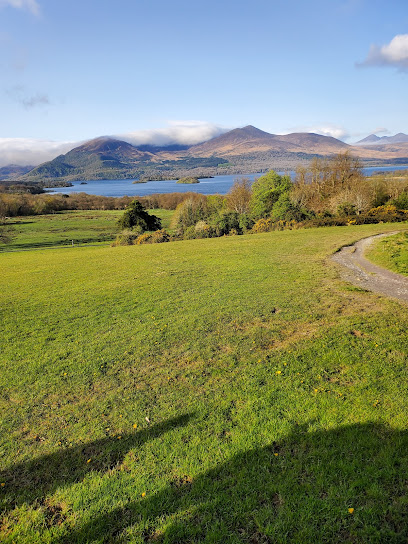
Unmissable attractions to see
Killarney National Park
Explore Killarney National Park, a stunning natural paradise in Co. Kerry, featuring majestic mountains, serene lakes, and diverse wildlife. Experience Ireland's beauty.
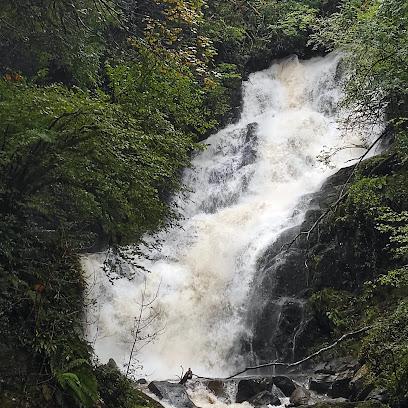
Muckross House
Explore Muckross House, a Victorian gem in Killarney National Park, where history, nature, and cuisine blend seamlessly for an unforgettable Irish experience.
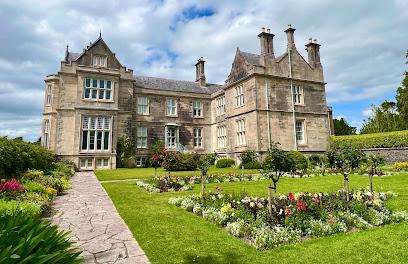
Ross Castle
Explore the historic Ross Castle, a stunning 15th-century fortress nestled beside Lough Leane in Killarney National Park, Ireland.

Torc Waterfall
Explore the stunning Torc Waterfall in Killarney National Park, a breathtaking natural wonder perfect for nature lovers and adventurers alike.
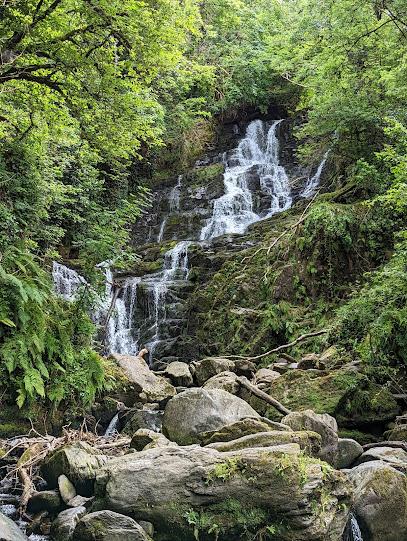
An Chonair / Conor Pass
Experience the stunning vistas and breathtaking hikes of An Chonair / Conor Pass in County Kerry, a must-visit tourist attraction in Ireland.
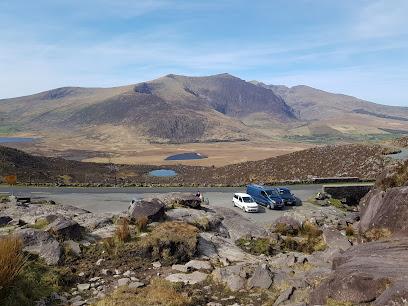
Kate Kearneys Cottage
Experience the warmth of Irish hospitality at Kate Kearney's Cottage, located in the stunning Gap of Dunloe, Killarney. A perfect blend of local flavors and breathtaking views.
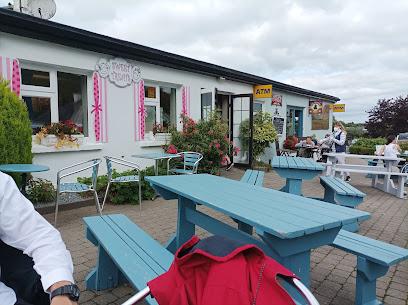
Muckross Abbey
Discover Muckross Abbey, a stunning 15th-century Franciscan monastery surrounded by the breathtaking landscapes of Killarney National Park.
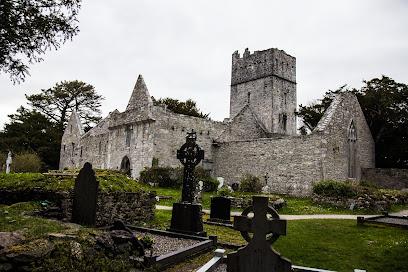
The Shire Bar & Cafe
Experience the warmth of Irish hospitality at The Shire Bar & Cafe in Killarney, where great food, live music, and friendly vibes await.
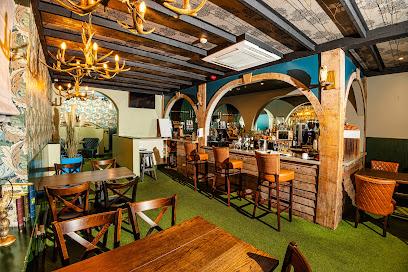
The Kerry Bog Village Museum
Explore the authentic heritage of Ireland at The Kerry Bog Village Museum, where history comes alive in the stunning landscapes of Co. Kerry.
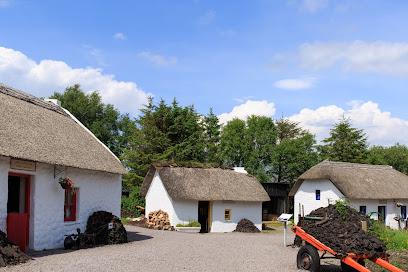
Crag Cave
Discover the stunning Crag Cave in County Kerry, a must-visit natural attraction featuring guided tours, a café, gift shop, and a playground for the whole family.
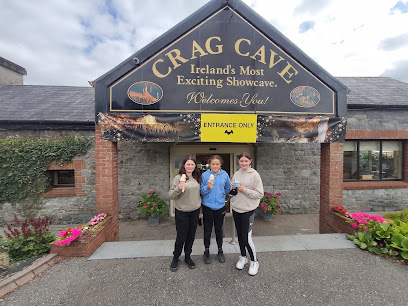
Bantry House
Explore the enchanting Bantry House, a historical landmark in Co. Cork, featuring stunning gardens, rich heritage, and a delightful café experience.

Molly Gallivans Visitor Centre
Discover the heart of Irish culture at Molly Gallivans Visitor Centre in Co. Kerry, where crafts, tea, and local history come alive!
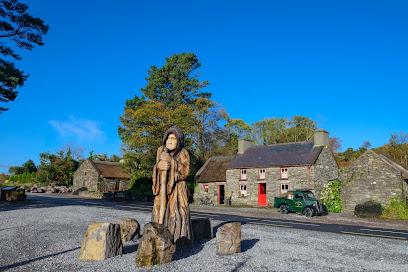
Dingle Peninsula
Explore the breathtaking beauty and rich history of Dingle Peninsula, a top destination in Co. Kerry for nature lovers and cultural enthusiasts.
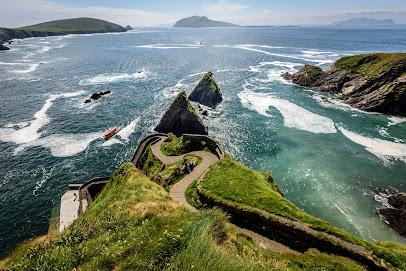
St. Mary’s Cathedral
Discover the stunning architecture and serene ambiance of St. Mary’s Cathedral in Killarney, a captivating blend of history and spirituality.
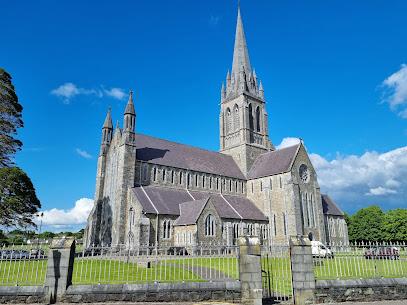
The Taproom at Killarney Brewing & Distilling Co.
Experience the essence of Killarney at The Taproom, where craft beer meets artisan pizza in a vibrant brewpub setting.
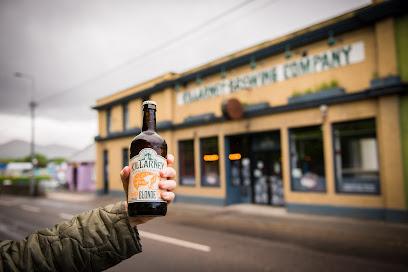
Essential places to dine
J.M. Reidy's
Discover J.M. Reidy's: A charming restaurant and pub in Killarney offering delicious local cuisine and a vibrant atmosphere.
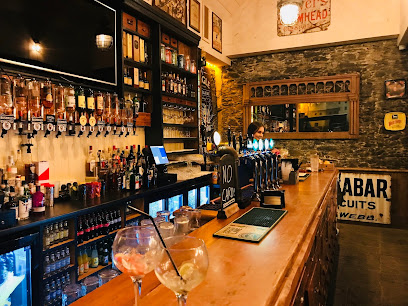
Murphys Bar, Restaurant & Townhouse Killarney
Discover authentic Irish cuisine and lively atmosphere at Murphys Bar, Restaurant & Townhouse in Killarney - your gateway to unforgettable experiences.
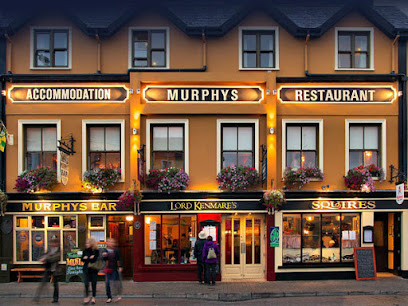
The Laurels Pub & Restaurant
Experience authentic Irish hospitality at The Laurels Pub & Restaurant in Killarney—where delicious food meets vibrant local culture.
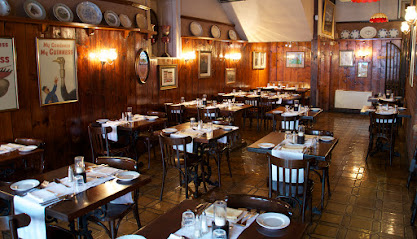
The Shire Bar & Cafe
Experience the charm of Killarney at The Shire Bar & Cafe – where delicious food meets vibrant entertainment in a whimsical setting.
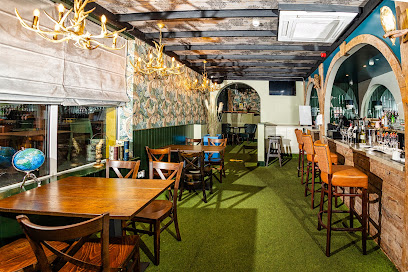
Quinlan's Seafood Bar
Discover the taste of fresh Irish seafood at Quinlan's Seafood Bar in Killarney – where every dish tells a story.
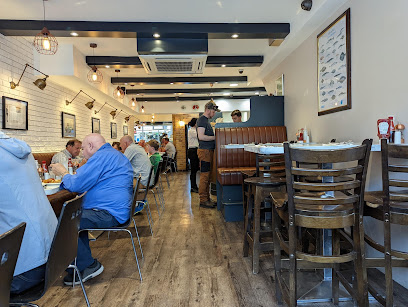
Khao Asian Street Food
Experience authentic Thai cuisine at Khao Asian Street Food in Killarney – a delightful culinary journey awaits every visitor.
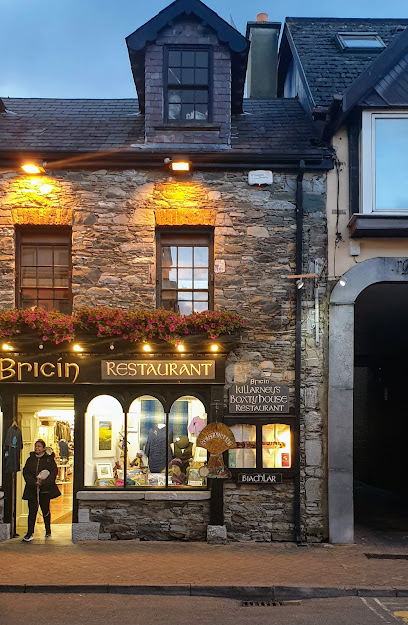
Porterhouse Restaurant
Discover the essence of Irish cuisine at The Porterhouse Restaurant in Killarney, where tradition meets contemporary flair in every dish.
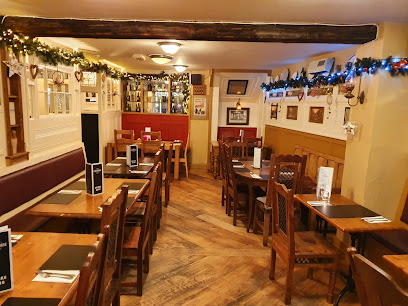
Danny Mann Pub
Discover the charm of Killarney at Danny Mann Pub – where traditional Irish cuisine meets lively entertainment in a cozy setting.
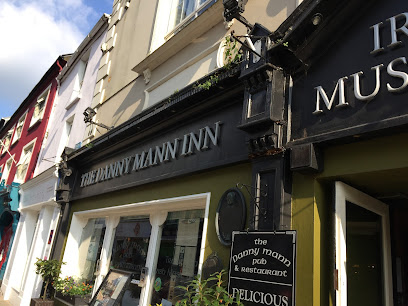
Cronins Restaurant
Experience authentic Irish cuisine at Cronins Restaurant in Killarney - where local flavors meet warm hospitality.
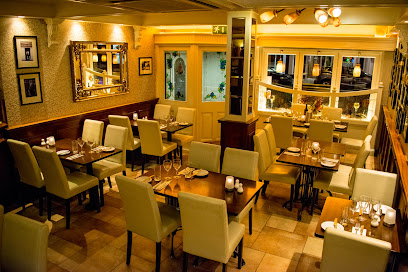
Salvadors & Robertinos Killarney
Experience exquisite dining at Salvadors & Robertinos in Killarney, where local ingredients meet global cuisine in an inviting atmosphere.
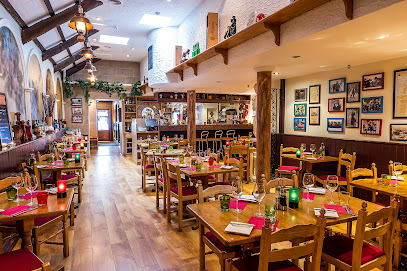
Celtic Whiskey Bar & Larder
Experience authentic Irish hospitality at Celtic Whiskey Bar & Larder in Killarney - where fine whiskey meets delicious gastropub cuisine.
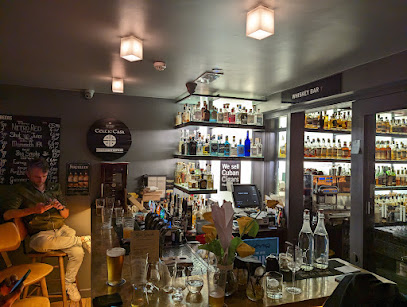
Genting Thai Restaurant
Discover the authentic flavors of Thailand at Genting Thai Restaurant in Killarney - where every dish tells a story.
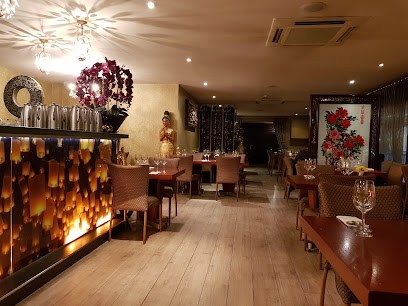
Rob's Ranch House Killarney
Discover the heart of Irish cuisine at Rob's Ranch House in Killarney – where tradition meets flavor in a cozy atmosphere.
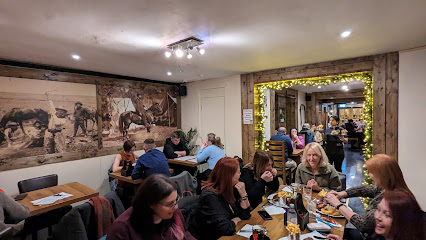
Caragh Restaurant & Lounge Bar
Experience the taste of Ireland at Caragh Restaurant & Lounge Bar in Killarney – where local ingredients meet exquisite flavors.
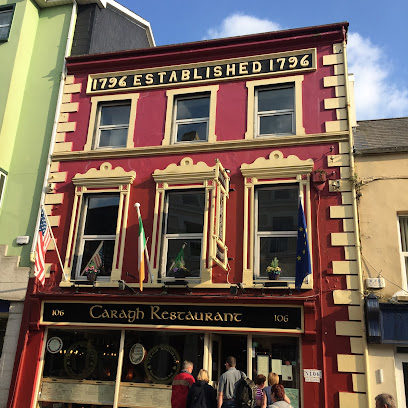
Bricín Restaurant and Boxty House
Experience authentic Irish cuisine at Bricín Restaurant and Boxty House in Killarney - home to delicious boxty dishes and local crafts.
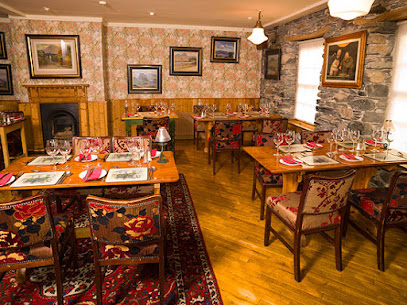
Markets, malls and hidden boutiques
Ladies' View Gift Store Cafe Bar & Roof Terrace
Discover unique gifts, local cuisine, and stunning views at Ladies' View Gift Store Cafe Bar & Roof Terrace in Killarney, Co. Kerry.
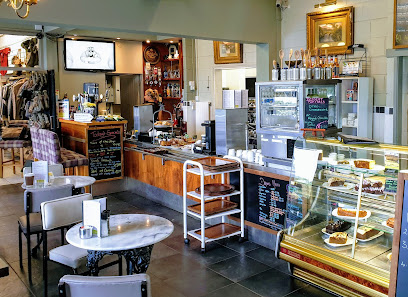
Killarney Outlet Centre
Discover unbeatable deals and a cozy atmosphere at Killarney Outlet Centre, your ideal shopping destination in County Kerry.
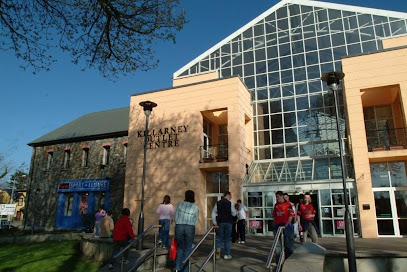
Penneys
Explore Killarney's fashion gem, Penneys, where style meets affordability in a vibrant shopping atmosphere.
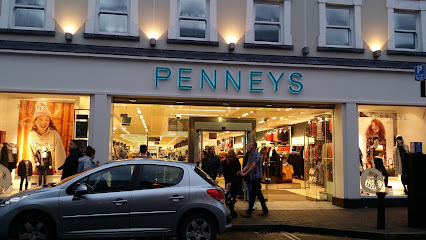
TK Maxx
Explore TK Maxx in Killarney for unbeatable deals on fashion, home goods, and more. A paradise for budget-savvy tourists seeking quality finds!
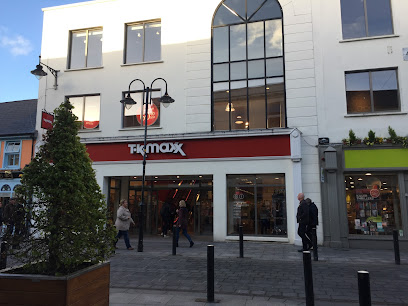
Brand Max
Discover unbeatable deals on clothing, toys, and home goods at Brand Max, Killarney's premier discount store for families and savvy shoppers.
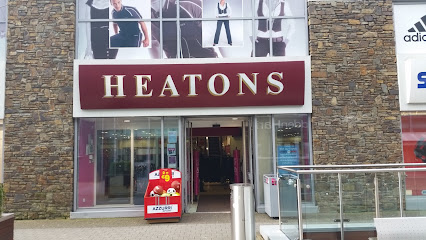
Moriarty's Authentic Irish Gift Store
Explore Moriarty's Authentic Irish Gift Store in Killarney for unique Irish goods, handcrafted jewelry, and a taste of Ireland's rich cultural heritage.
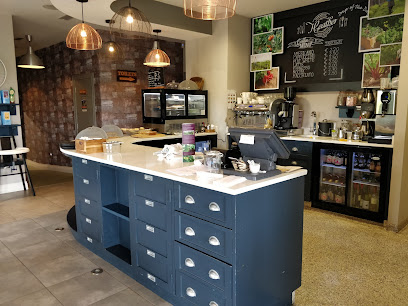
Aran Sweater Market
Explore the Aran Sweater Market in Killarney for authentic Irish knitwear and unique gifts that embody the spirit of Ireland.
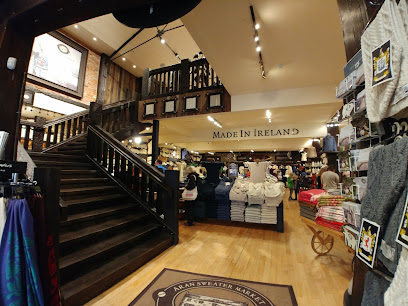
Army Surplus Warehouse
Explore the Army Surplus Warehouse in Killarney for military gear, outdoor essentials, and unique souvenirs in a vibrant shopping atmosphere.
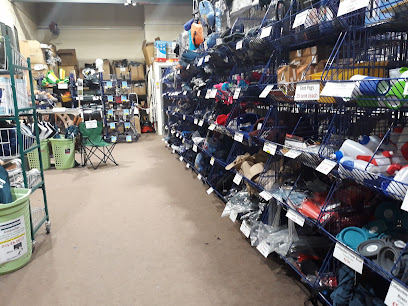
Quills Woollen Market
Discover the essence of Ireland at Quills Woollen Market, Killarney's premier destination for authentic clothing and unique gifts.
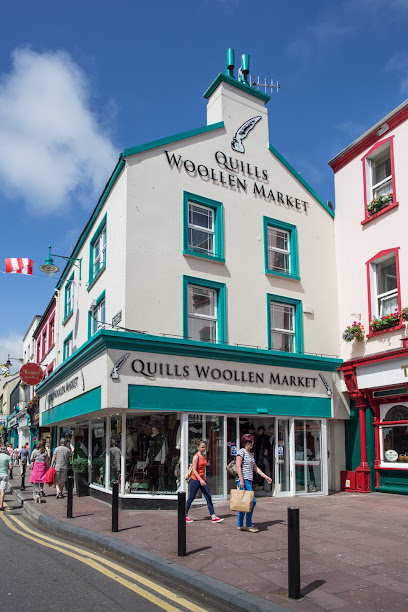
The Dungeon Bookshop
Discover a treasure trove of books, art supplies, and stationery at The Dungeon Bookshop in Killarney, Ireland's charming haven for creatives.
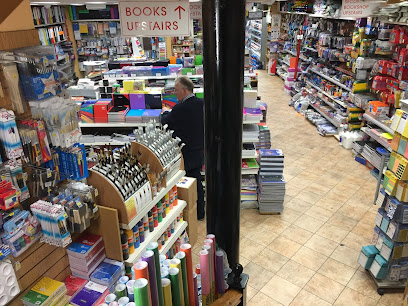
Mr. McGuires Olde SweetShop
Discover a whimsical candy paradise at Mr. McGuire's Olde Sweet Shop in Killarney, where unique sweets and nostalgic flavors await every visitor.
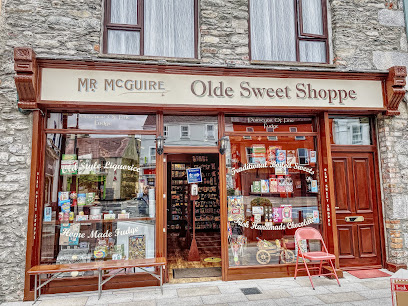
O'Neills of Killarney
Explore O'Neills of Killarney, a charming gift and fishing shop offering unique local crafts and quality fishing gear in the heart of Killarney.
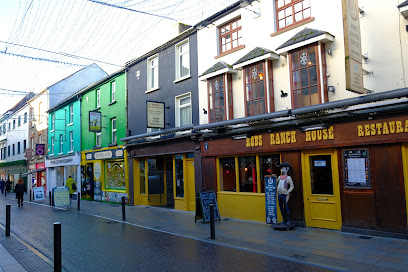
Kerry GAA Store
Explore the Kerry GAA Store in Killarney – your ultimate destination for Gaelic games merchandise and local pride.
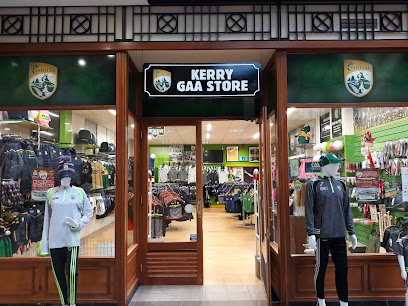
World of Wonder
Explore a treasure trove of toys and games at World of Wonder, Killarney's enchanting destination for playful minds of all ages.
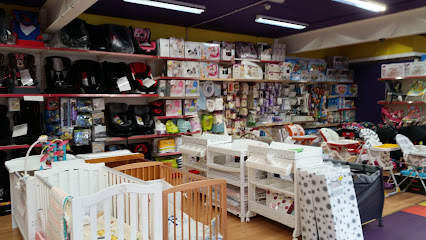
Hazel’s Nuts About Vintage
Explore Hazel’s Nuts About Vintage in Killarney for an unforgettable selection of unique vintage clothing and accessories.
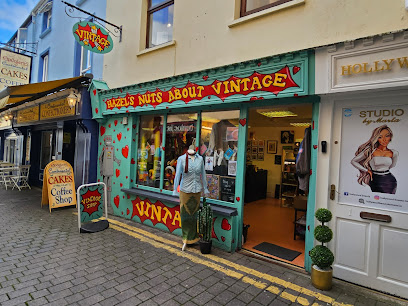
Essential bars & hidden hideouts
J.M. Reidy's
Discover the authentic taste of Ireland at J.M. Reidy's in Killarney, where great food, drinks, and a lively atmosphere await you.
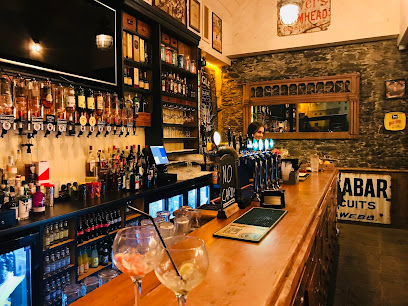
Murphys Bar, Restaurant & Townhouse Killarney
Discover the heart of Killarney at Murphys Bar, Restaurant & Townhouse, where authentic Irish cuisine meets warm hospitality in a cozy pub setting.
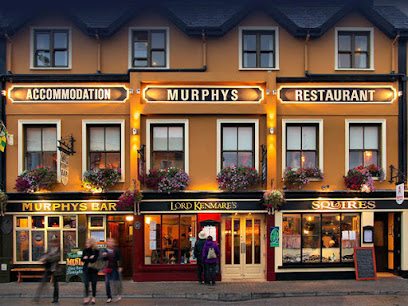
The Laurels Pub & Restaurant
Discover the heart of Killarney at The Laurels Pub & Restaurant, where traditional Irish flavors meet a lively atmosphere in a charming setting.
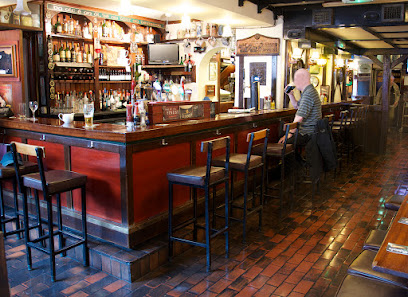
The Shire Bar & Cafe
Experience the vibrant atmosphere of The Shire Bar & Cafe in Killarney, where delicious food meets live entertainment in a welcoming setting.
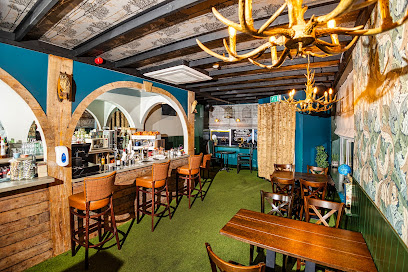
Danny Mann Pub
Discover the authentic Irish pub experience at Danny Mann in Killarney, where great food, drinks, and live music await you.
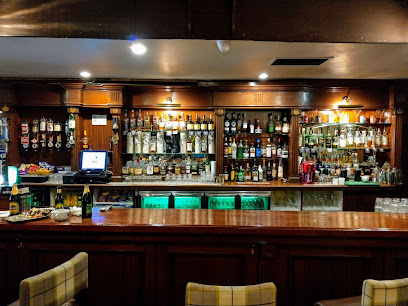
The Killarney Grand
Experience the vibrant atmosphere of The Killarney Grand, where Irish hospitality, live music, and a great selection of drinks await you.
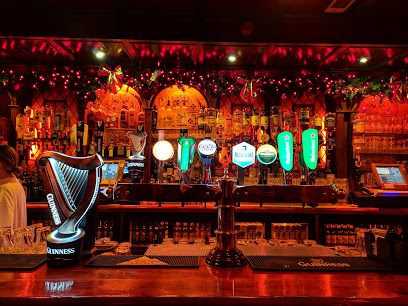
O'Connors Traditional Pub
Discover O'Connors Traditional Pub: A cornerstone of Killarney's vibrant culture, offering delicious food, local drinks, and unforgettable live music.
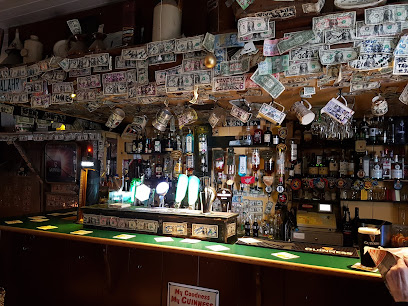
Celtic Whiskey Bar & Larder
Experience the Best of Irish Whiskey and Cuisine at Celtic Whiskey Bar & Larder in Killarney
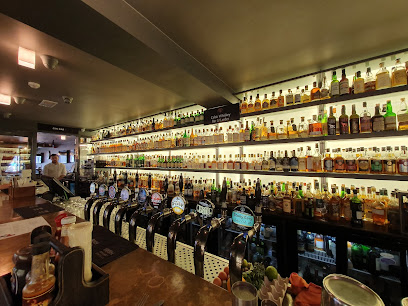
Hannigans Bar, Restaurant & Terrace
Discover the perfect blend of Irish charm and culinary excellence at Hannigans Bar, Restaurant & Terrace in Killarney.
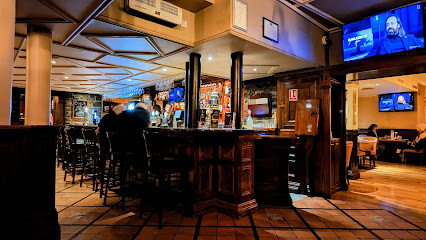
O'Donoghue Public House
Discover the vibrant atmosphere and authentic Irish cuisine at O'Donoghue Public House in Killarney, a must-visit for every traveler.
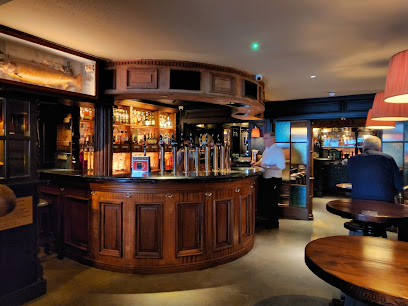
Courtney's Bar
Experience the vibrant atmosphere and local brews at Courtney's Bar in Killarney, where Irish hospitality comes alive.
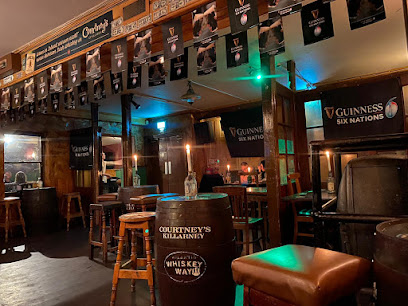
Scotts Bar & Courtyard
Experience the heart of Killarney at Scotts Bar & Courtyard - where authentic Irish cuisine meets vibrant atmosphere.
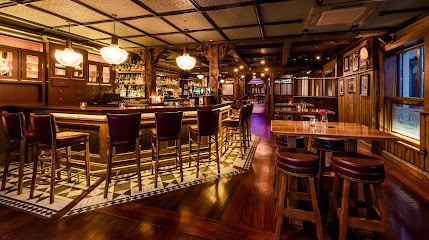
Speakeasy Bar
Discover the Speakeasy Bar in Killarney: A vibrant Irish pub offering local brews, live music, and a taste of Irish culture in a cozy setting.
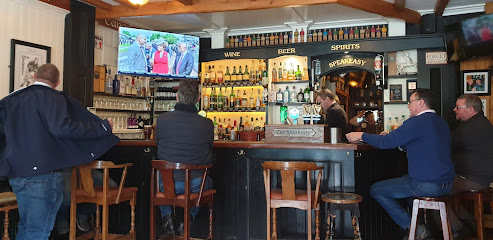
The Lane (Fun Food & Awesome Cocktails)
Experience delightful brunches and crafted cocktails at The Lane in Killarney, where local flavors meet a vibrant atmosphere.
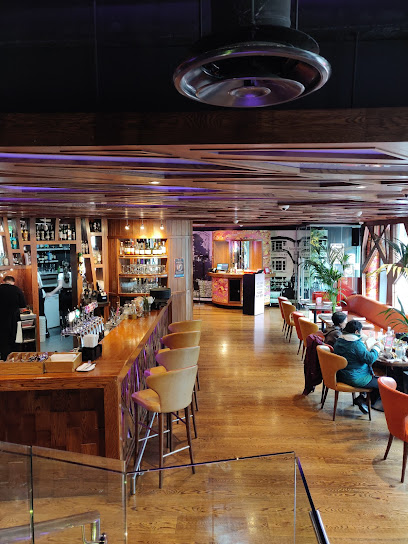
Jimmy Brien's Bar
Immerse yourself in the vibrant atmosphere of Jimmy Brien's Bar, Killarney's premier sports bar for unforgettable live sports and local camaraderie.
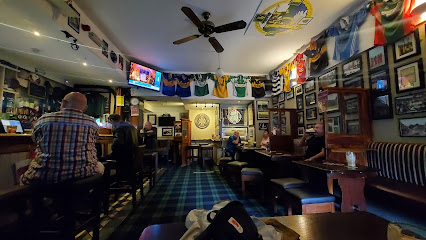
Travel experiences inspired by this city
Explore more travel diariesLocal Phrases
-
- HelloDia dhuit
[dee-ah gwitch] - GoodbyeSlán
[slawn] - YesTá
[taw] - NoNíl
[neel] - Please/You're welcomeLe do thoil
[leh duh hull] - Thank youGo raibh maith agat
[guh rev mah ugg-ut] - Excuse me/SorryGabh mo leithscéal
[gav muh leh-shkale] - How are you?Conas atá tú?
[kun-us ah-taw too] - Fine. And you?Go maith. Agus tú?
[guh mah ah-gus too] - Do you speak English?An labhraíonn tú Béarla?
[ahn law-vree-un too bayr-lah] - I don't understandNí thuigim
[nee hug-im]
- HelloDia dhuit
-
- I'd like to see the menu, pleaseBa mhaith liom an mhenu a fheiceáil, le do thoil
[ba wah lum on wen-oo ah eck-awl, leh duh hull] - I don't eat meatNí ithim feoil
[nee ih-him foh-il] - Cheers!Sláinte!
[slawn-cheh] - I would like to pay, pleaseBa mhaith liom íoc, le do thoil
[ba wah lum ee-uk, leh duh hull]
- I'd like to see the menu, pleaseBa mhaith liom an mhenu a fheiceáil, le do thoil
-
- Help!Cabhraigh!
[ka-vree] - Go away!Imigh uaim!
[ih-mee oom] - Call the Police!Glaoigh ar na Gardaí!
[glay-ee air na gar-dee] - Call a doctor!Glaoigh ar dochtúir!
[glay-ee air duck-too-er] - I'm lostTáim caillte
[tawm kahl-cheh] - I'm illTá mé tinn
[taw may chin]
- Help!Cabhraigh!
-
- I'd like to buy...Ba mhaith liom ceannach...
[ba wah lum kyawn-uk] - I'm just lookingNíl mé ach ag breathnú
[neel may akh eg breh-noo] - How much is it?Cé mhéad atá air?
[kay vayd ah-taw air] - That's too expensiveTá sin ró-dhaor
[taw shin row-yare] - Can you lower the price?An féidir leat an praghas a laghdú?
[ahn fay-djir lat an prah-gus ah lay-goo]
- I'd like to buy...Ba mhaith liom ceannach...
-
- What time is it?Cén t-am é?
[kane tahm ay] - It's one o'clockTá sé a haon
[taw shay ah hayn] - Half past (10)Leathuair tar éis a deich
[lah-hoo-ir tar aysh ah deh] - MorningMaidin
[mah-jin] - AfternoonTráthnóna
[traw-noh-nah] - EveningTráthnóna
[traw-noh-nah] - YesterdayInné
[in-ay] - TodayInniu
[in-yoo] - TomorrowAmárach
[ah-mar-ahk] - 1Aon
[ayn] - 2Dó
[doh] - 3Trí
[tree] - 4Ceathair
[cah-her] - 5Cúig
[coo-ig] - 6Sé
[shay] - 7Seacht
[shakht] - 8Ocht
[ukht] - 9Naoi
[nee] - 10Deich
[deh]
- What time is it?Cén t-am é?
-
- Where's a/the...?Cá bhfuil...?
[kaw wil] - What's the address?Céard atá ar an seoladh?
[kay-ard ah-taw air un shoh-lah] - Can you show me (on the map)?An féidir leat é a thaispeáint (ar an léarscáil)?
[ahn fay-djir lat ay ah hass-paint (ar un layr-skahl)] - When's the next (bus)?Cathain atá an chéad bus eile?
[kah-han ah-taw on khayd bus el-eh] - A ticket (to ....)Ticéad (go dtí ....)
[tick-ayd (goh dee)]
- Where's a/the...?Cá bhfuil...?
History of Killarney
-
Killarney's origins date back to the early medieval period. The town's name, 'Cill Airne,' is derived from the Irish language, meaning 'Church of the Sloe,' indicating the presence of a church and the sloe berry, which were significant in the area. The first known settlement in Killarney is believed to have been established by Saint Finian the Leper in the 6th century.
-
In the 7th century, Christianity began to take root in Killarney with the establishment of Innisfallen Abbey on Innisfallen Island in Lough Leane. Founded by Saint Finian the Leper, the abbey became a significant center of learning and religious activity. The Annals of Innisfallen, a chronicle of early Irish history, were compiled here and remain a crucial source for understanding the era.
-
The 12th century brought the Norman invasion, leading to significant changes in Killarney. The FitzGerald family, also known as the Earls of Desmond, established their stronghold in the region. They built several castles and forts, including Ross Castle, which still stands today. The FitzGeralds played a pivotal role in the political and social landscape of Killarney for several centuries.
-
Ross Castle, constructed in the late 15th century by the O'Donoghue clan, is one of Killarney's most iconic landmarks. During the Cromwellian conquest of Ireland in the 17th century, the castle was one of the last strongholds to fall to Cromwell's forces. Its capture marked a significant moment in Irish history, symbolizing the end of Gaelic rule in the area.
-
In the 18th century, the Herbert family acquired extensive lands in Killarney and played a crucial role in its development. They transformed Muckross Estate into a magnificent Victorian mansion and gardens. The Herberts were instrumental in promoting Killarney as a tourist destination, attracting visitors with the natural beauty of the lakes and surrounding landscapes.
-
In 1861, Queen Victoria visited Killarney, staying at Muckross House. This event was a significant boost to the town's reputation as a premier tourist destination. The Herberts made extensive preparations for the royal visit, including remodeling parts of the house and gardens. Victoria's visit helped to cement Killarney's status as a must-see location for travelers.
-
Established in 1932, Killarney National Park was Ireland's first national park. The park was initially formed from lands donated by the Muckross Estate and has since expanded to cover more than 25,000 acres. It encompasses stunning landscapes, including lakes, mountains, and woodlands, and is home to diverse flora and fauna, making it a vital part of Killarney's cultural and natural heritage.
-
Killarney has long been a center for the preservation and celebration of traditional Irish culture. The town hosts numerous festivals and events throughout the year that showcase Irish music, dance, and storytelling. The Killarney Summerfest and the Killarney Races are two examples of events that draw visitors from around the world, eager to experience the rich cultural heritage of the area.
Killarney Essentials
-
Killarney is located in County Kerry, in the southwest of Ireland. The nearest airport is Kerry Airport (Farranfore), about 17 kilometers away. The airport offers regular flights from Dublin and London. Alternatively, Cork Airport is about 90 kilometers away and Shannon Airport is roughly 135 kilometers away. From these airports, you can rent a car, take a bus, or use a train service to reach Killarney. Irish Rail operates direct train services from Dublin to Killarney, and Bus Éireann provides bus services from major cities.
-
Killarney is a compact town, and many of its attractions are within walking distance. For longer trips, local taxis are readily available and reasonably priced. Killarney also has a good public bus network, with Bus Éireann providing connections to nearby towns and villages. Additionally, cycling is a popular way to explore Killarney, particularly the scenic routes around Killarney National Park. Bicycle rental shops are widely available. For a leisurely experience, you can also take a jaunting car (horse-drawn carriage) tour.
-
The official currency in Ireland is the Euro (€). Credit and debit cards are widely accepted in hotels, restaurants, and shops. However, it is advisable to carry some cash for smaller establishments and rural areas. ATMs are plentiful in Killarney, and currency exchange services are available at banks and some hotels. Tipping is customary in Ireland, with 10-15% being standard in restaurants and for taxi services.
-
Killarney is generally a safe destination for tourists. Nonetheless, it is important to take standard precautions, such as avoiding isolated areas at night and keeping an eye on your belongings in crowded places. Killarney does not have specific high-crime areas targeting tourists, but it is always best to remain vigilant and aware of your surroundings.
-
In case of an emergency, dial 112 or 999 for immediate assistance. Killarney has a local Garda (police) station and medical facilities, including a hospital and several pharmacies. It is recommended to have travel insurance that covers medical emergencies. For minor health issues, pharmacies in the town can provide over-the-counter medications and advice.
-
Fashion: Do dress in layers to adapt to the changing weather. Casual dress is generally acceptable, but consider dressing more formally for fine dining or special events. Religion: Do respect local religious customs. When visiting churches, dress modestly and remain silent during services. Public Transport: Do be courteous to fellow passengers. Don't block seats with bags and avoid loud conversations. Greetings: Do greet people warmly. A simple 'hello' or 'hi' is customary. Eating & Drinking: Do try local dishes and beverages. Don't forget to tip service staff around 10-15%.
-
To experience Killarney like a local, visit its traditional pubs and engage in a conversation with the friendly locals. Take a stroll or a bike ride through Killarney National Park to enjoy its natural beauty. For an authentic experience, attend a local festival or event. Don't miss out on traditional Irish music sessions available in many pubs. Exploring lesser-known trails and lakes within the national park can provide a more serene and personal experience.
Trending Landmark in Killarney
-
Killarney National Park
-
Muckross House
-
Ross Castle
-
Torc Waterfall
-
Killarney Outlet Centre
-
J.M. Reidy's
-
Great Southern Killarney
-
Muckross Abbey
-
The Taproom at Killarney Brewing & Distilling Co.
-
Tatler Jack
-
Bricín Restaurant and Boxty House
-
The Black Sheep Hostel & Coffee Shack
-
Knockreer Playground
-
Killarney House and Gardens
-
Killarney Riding Stables
Nearby Cities to Killarney
-
Things To Do in Tralee
-
Things To Do in Dingle
-
Things To Do in Cork
-
Things To Do in Kinsale
-
Things To Do in Limerick
-
Things To Do in Ennis
-
Things To Do in Salthill
-
Things To Do in Galway
-
Things To Do in Waterford
-
Things To Do in Kilkenny
-
Things To Do in Athlone
-
Things To Do in Westport
-
Things To Do in Wexford
-
Things To Do in Sligo
-
Things To Do in Dublin















